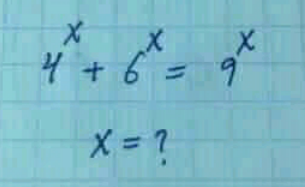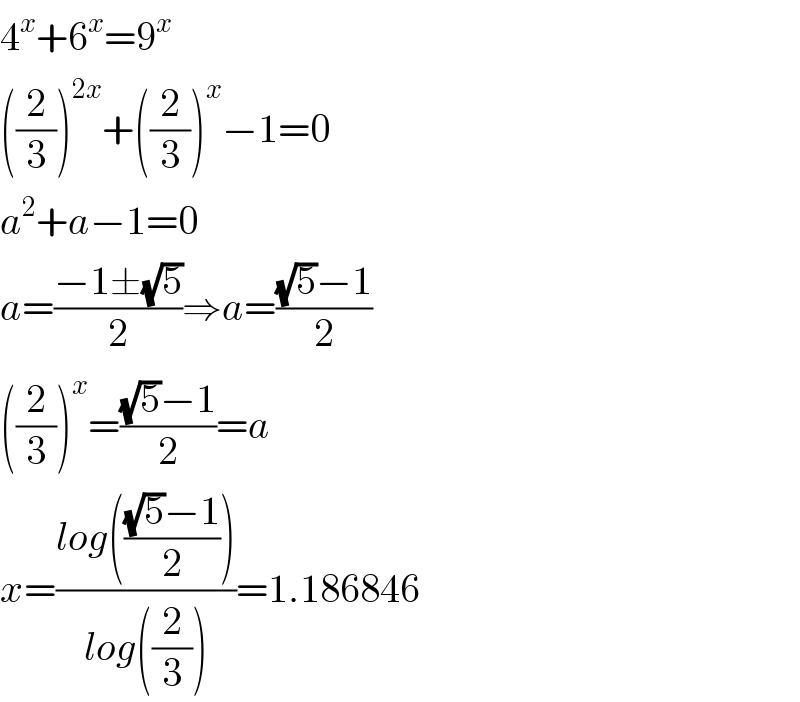Question Number 117107 by Khalmohmmad last updated on 09/Oct/20

Answered by Dwaipayan Shikari last updated on 09/Oct/20

$$\mathrm{4}^{{x}} +\mathrm{6}^{{x}} =\mathrm{9}^{{x}} \\ $$$$\left(\frac{\mathrm{2}}{\mathrm{3}}\right)^{\mathrm{2}{x}} +\left(\frac{\mathrm{2}}{\mathrm{3}}\right)^{{x}} −\mathrm{1}=\mathrm{0} \\ $$$${a}^{\mathrm{2}} +{a}−\mathrm{1}=\mathrm{0} \\ $$$${a}=\frac{−\mathrm{1}\pm\sqrt{\mathrm{5}}}{\mathrm{2}}\Rightarrow{a}=\frac{\sqrt{\mathrm{5}}−\mathrm{1}}{\mathrm{2}} \\ $$$$\left(\frac{\mathrm{2}}{\mathrm{3}}\right)^{{x}} =\frac{\sqrt{\mathrm{5}}−\mathrm{1}}{\mathrm{2}}={a} \\ $$$${x}=\frac{{log}\left(\frac{\sqrt{\mathrm{5}}−\mathrm{1}}{\mathrm{2}}\right)}{{log}\left(\frac{\mathrm{2}}{\mathrm{3}}\right)}=\mathrm{1}.\mathrm{186846} \\ $$
